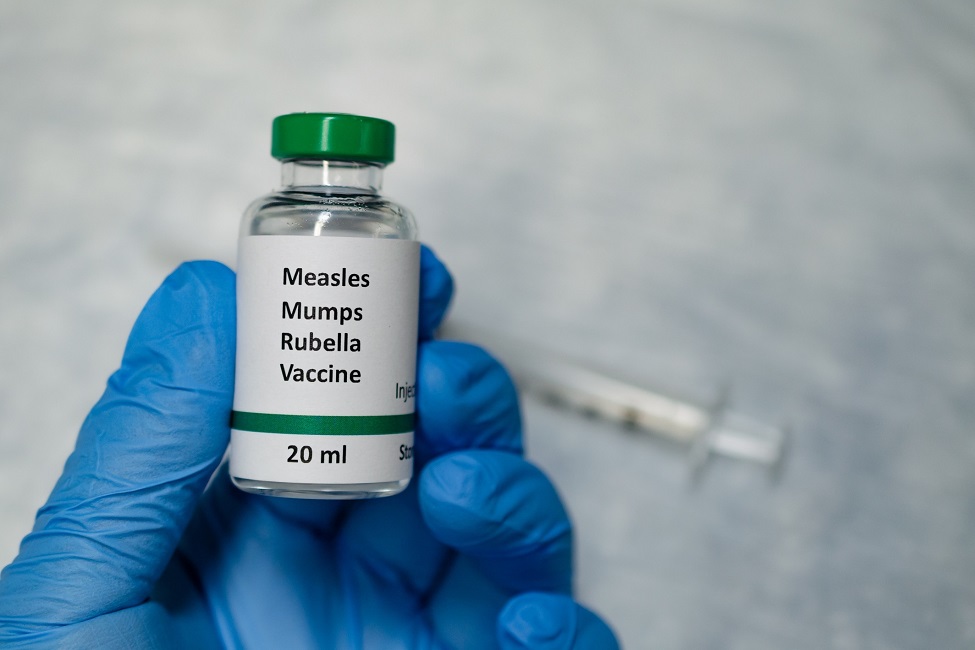The Dynamics of Public Health: Part 2

By: Ryan Wolfe
May 5, 2025
With growing anti-vaccine skepticism, measles and tuberculosis cases have surged across Texas, New Mexico, and Kansas, creating new public health challenges for the current administration. Reports indicate this is the largest measles outbreak in the U.S. in a decade. Meanwhile, a brewing mental health crisis remains largely overlooked by major health departments, with its long-term effects yet to be fully understood.
Before delving into the mental health aspect of public health, it’s crucial to highlight the role of medicine and global collaboration in combating infectious diseases. The inactivated polio vaccine (IPV) and oral polio vaccine (OPV), introduced in the 1950s and 60s, played a vital role in eradicating polio from the U.S. by 1979 and from the Western Hemisphere by 1991. This success was driven by strong public health initiatives and coordinated efforts, demonstrating the power of medical advancements. However, polio has not been completely eliminated, underscoring the continued need for vigilance and prevention.
Countries like Nigeria, Pakistan, and Afghanistan remain at high risk for polio due to limited healthcare and vaccine access, leaving many vulnerable to severe illness or paralysis. In 2022, an unvaccinated man in New York contracted polio, prompting swift action from public health teams to analyze wastewater in Rockland County and nearby areas. This incident underscores the fragility of public health and the critical importance of collective responsibility in protecting ourselves and future generations.
Public health discussions in the media largely revolve around RFK Jr.’s focus on food, chronic illness, and healthy living, or the consequences of cuts to vaccine and cancer research. Meanwhile, mental health remains overlooked, despite its growing urgency in the post-COVID era. Advancements in AI and technology have quietly contributed to the worsening crisis, while issues like homelessness and the opioid epidemic further signal an alarming mental health crisis fueled by current conditions in the United States.
A study monitoring the screen time of 5,100 youth found that excessive technology use correlates with increased depression, social anxiety, aggression, and bullying. Given the brain’s malleability, prolonged screen exposure may heighten teens’ risk of mental health struggles, impacting their academics, social interactions, and potentially leading to isolation.
Professor Halpern from U.C. Berkeley acknowledges that A.I. could have therapeutic applications but emphasizes its limitations in deeply personal therapeutic relationships compared to Cognitive Behavioral Therapy (CBT). CBT, a straightforward practice where individuals document their thoughts and emotions, serves as a structured method for tracking mental health over time. While A.I. might enhance digital record-keeping, it lacks the depth needed for direct therapeutic engagement.
Halpern also expresses concern that people may misconstrue their A.I. companion as a genuine friend or source of emotional care. While chatbots are programmed to respond in a supportive manner, they draw on data rather than shared human experiences, making their interactions fundamentally different from those of a real therapist or confidant.
The ethical implications of A.I. in mental health care remain a topic of debate among doctors and patients alike. Meanwhile, the growing homelessness crisis is deeply connected to mental health struggles. Many homeless individuals, often coming from backgrounds of poverty and instability, face heightened risks of infectious diseases, cancer, suicide, homicide, and heart conditions.
Lack of financial resources and the stigma of being perceived as “unstable” frequently prevent them from receiving proper care. Psychiatric services for the homeless are often overlooked, as efforts tend to prioritize immediate necessities like shelter, food, and water. Additionally, barriers such as limited communication, lack of transportation, and systemic obstacles make seeking mental health support even more difficult.
A stark reality is that homeless individuals are disproportionately exposed to violence, and untreated mental health conditions—including depression and addiction—can not only worsen their own circumstances but also contribute to broader public safety concerns.
While homelessness presents immense challenges, there is hope—many organizations are dedicated to helping people rebuild their lives. One such group is Lutheran Social Services of Minnesota, which works to prevent evictions, provide housing for struggling families, youth, and individuals with disabilities, and collaborate with developers to ensure affordable, stable living conditions. Serving communities across the Twin Cities, Brainerd, and St. Cloud, thousands of dedicated employees and volunteers work tirelessly to support those in need during their most difficult moments.
The future of public health feels uncertain as the new administration begins to shape its policies. Infectious diseases remain a persistent threat, underscoring the importance of maintaining hygiene and holding health agencies accountable. Advocacy is crucial—contacting local representatives and senators can help emphasize the risks of cutting research on infectious diseases, cancer, HIV/AIDS, and more.
Mental health also demands greater attention, as homelessness rises and children struggle to navigate an increasingly technological world. While organizations work tirelessly, individual actions can make a meaningful difference. Simple steps, like reducing screen time for young people and consulting trusted physicians when issues arise, are vital.
Stay informed about your health, ask questions, and embrace the evolving nature of science and medicine. Public health is the cornerstone of healthy communities, and awareness is the first step toward supporting those in need. Whether addressing mental health or communicable diseases, accessible healthcare and reliable public health data are essential tools in combating illness and fostering well-being. Take care of yourselves and each other—every effort counts.
